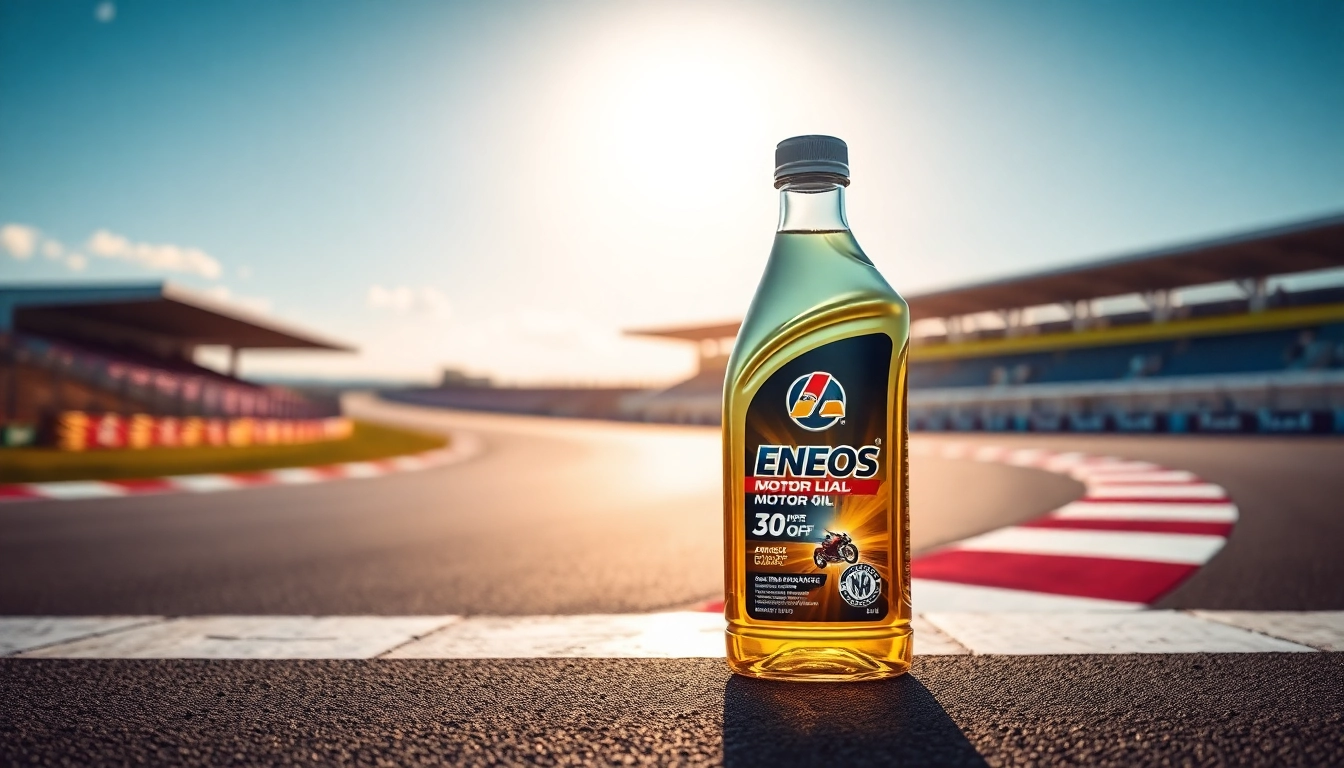Understanding Engine 5W30 Oil
What is Engine 5W30 Oil?
Engine 5W30 oil is a multi-grade motor oil that has been formulated to perform well across a wide range of temperatures. The “5” in the designation indicates its viscosity at low temperatures, while the “30” denotes its viscosity at high temperatures. This versatility means that it can operate efficiently in various climates, making it one of the most commonly used oil types in everyday vehicles. This oil type is particularly popular for both gasoline and diesel engines, which require different lubrication properties.
Benefits of Using 5W30 Oil in Your Engine
Using 5W30 oil in your car can have several advantages:
- Improved Fuel Efficiency: Engine 5w30 oil helps reduce engine friction, which can lead to better fuel economy. Cars using this oil can often travel longer distances on a gallon of fuel compared to those using heavier oils.
- Enhanced Engine Protection: This oil type provides great protection against wear and tear, particularly in extreme operational conditions. Its advanced blending allows for effective coating of engine components, which helps prevent damage from heat and debris.
- Performance in Low Temperatures: 5W30 oil ensures easy cold starts in winter conditions. This is crucial as cold, thick oil can make starting the engine laborious, leading to increased wear over time.
- Versatile Use: Suitable for a wide variety of vehicles, 5W30 oil is ideal for modern engines operating across various conditions. Its multi-grade nature makes it an excellent choice for drivers who face temperature fluctuations.
Common Myths About Engine 5W30 Oil
Despite its popularity, there are several myths regarding 5W30 oil that need addressing:
- All oils are the same: This is perhaps the biggest myth. Different oils serve different engine types and conditions. Using the wrong oil can lead to subpar engine performance.
- Synthetic oil is always better: While synthetic oils like 5W30 provide superior performance in many situations, conventional oils are still viable for certain applications and can be more cost-effective.
- Higher viscosity oils offer better protection: While heavier oils do offer a certain level of protection, they can also lead to reduced fuel efficiency and more strain on the engine at startup.
Selecting the Right Engine 5W30 Oil for Your Vehicle
Understanding Oil Specifications and Ratings
Choosing the correct oil is not just about viscosity. Automakers specify certain oil standards endorsed by governing bodies like the American Petroleum Institute (API) or the International Organization for Standardization (ISO). Understanding these ratings is crucial for maintaining optimal engine performance.
Top Brands of Engine 5W30 Oil to Consider
When shopping for 5W30 oil, several brands stand out for their reliability and performance:
- ENEOS: Known for its fully synthetic formulations, ENEOS 5W30 offers excellent engine cleanliness and protection.
- Valvoline: A trusted brand that provides high mileage synthetic blend formulations, which are ideal for older vehicles.
- Mobil 1: Popular for its advanced synthetic oils, Mobil 1’s 5W30 variant is well-regarded for providing exceptional performance and fuel economy.
- Casteroil: Known for producing high-quality oils that maximize engine efficiency and longevity.
How to Choose Between Synthetic and Conventional Oil
When selecting oil, one of the most significant decisions is whether to choose synthetic or conventional oil:
- Synthetic oils: Typically provide better performance in terms of thermal stability, reduce engine wear, and enable longer intervals between oil changes.
- Conventional oils: Usually cheaper and suitable for older vehicles or those with simpler engine designs. However, they may require more frequent changes and do not perform as well under extreme conditions.
Best Practices for Engine Oil Maintenance
How Often to Change Engine 5W30 Oil
The frequency of oil changes depends on the type of oil used and your driving habits. For vehicles using conventional 5W30 oil, a change is recommended every 3,000 to 5,000 miles. However, synthetic 5W30 oils can stretch this interval up to 7,500 or even 10,000 miles, particularly in highway driving conditions where the engine is less stressed.
Signs Your Engine Oil Needs to Be Changed
Engine oil should be monitored regularly for signs that it needs to be changed:
- Dark, gritty texture: Fresh oil is amber or golden in color. If it appears dark or contains particles, it’s time for a change.
- Lower oil level: Keeping an eye on your oil level can alert you to potential leaks or excessive consumption indicating the need for an oil change.
- Noise or knocking sounds: If your engine starts making unusual noises, it may indicate that the oil is breaking down and is no longer providing proper lubrication.
DIY: How to Change Engine Oil Yourself
Changing your engine oil can be a simple task if done correctly. Here’s a step-by-step guide:
- Gather your materials: You’ll need a wrench, an oil filter wrench, a drain pan, a funnel, and the new 5W30 oil.
- Warm up your engine briefly to thin out the oil, making it easier to drain.
- Locate the oil drain plug under your vehicle and position your drain pan underneath it. Remove the plug and allow the old oil to flow into the pan.
- Replace the oil filter using the oil filter wrench, and ensure any old gasket material is removed.
- Replace the drain plug and pour in your fresh 5W30 oil using the funnel. Check your owner’s manual for the exact amount.
- Start your engine and let it run for a few minutes, checking for leaks, then check the oil level and top off if necessary.
Common Questions About Engine 5W30 Oil
What Vehicles Benefit Most from 5W30 Oil?
5W30 oil is a popular choice for various vehicles, particularly those with light-duty engines in cars, SUVs, and light trucks. It is commonly recommended by manufacturers for vehicles that operate in moderate climates and driving conditions.
How Does Temperature Affect 5W30 Engine Oil?
Temperature plays a significant role in the performance of engine oil. In colder conditions, the lower viscosity of 5W30 ensures that the oil can flow quickly to vital engine parts during startup. Conversely, at higher temperatures, the oil maintains its viscosity to protect against wear and tear.
Is 5W30 Oil Suitable for High-Mileage Vehicles?
Yes, 5W30 can be suitable for high-mileage vehicles, especially those designed to use it. Many manufacturers recommend high-mileage formulations that include additional conditioning agents to protect against wear, reduce leaks, and maintain efficiency.
Conclusion: Making Informed Choices About Engine 5W30 Oil
Summarizing Key Points
Choosing the right engine oil is crucial for the longevity and performance of your vehicle. 5W30 oil offers flexibility, efficiency, and reliable protection for a wide range of engines. Understanding its benefits, selecting the right product, and adhering to maintenance best practices can greatly influence your vehicle’s performance over time.
Future Developments in Engine Oil Technology
As technology advances, engine oils continue to evolve. While 5W30 oil remains a staple, the introduction of new formulations that offer enhanced performance under extreme conditions is on the horizon. Innovations may lead to greater fuel efficiency and reduced emissions, highlighting the need for consumers to stay updated on the latest advancements in engine oil technology.
Looking for the Best Deals on Engine 5W30 Oil
When purchasing engine oil, always compare prices and seek reputable brands. Retailers often have special deals, particularly during automotive events or when launching new products. Checking reviews and professional recommendations can also guide you in making informed purchases.














Leave a Reply